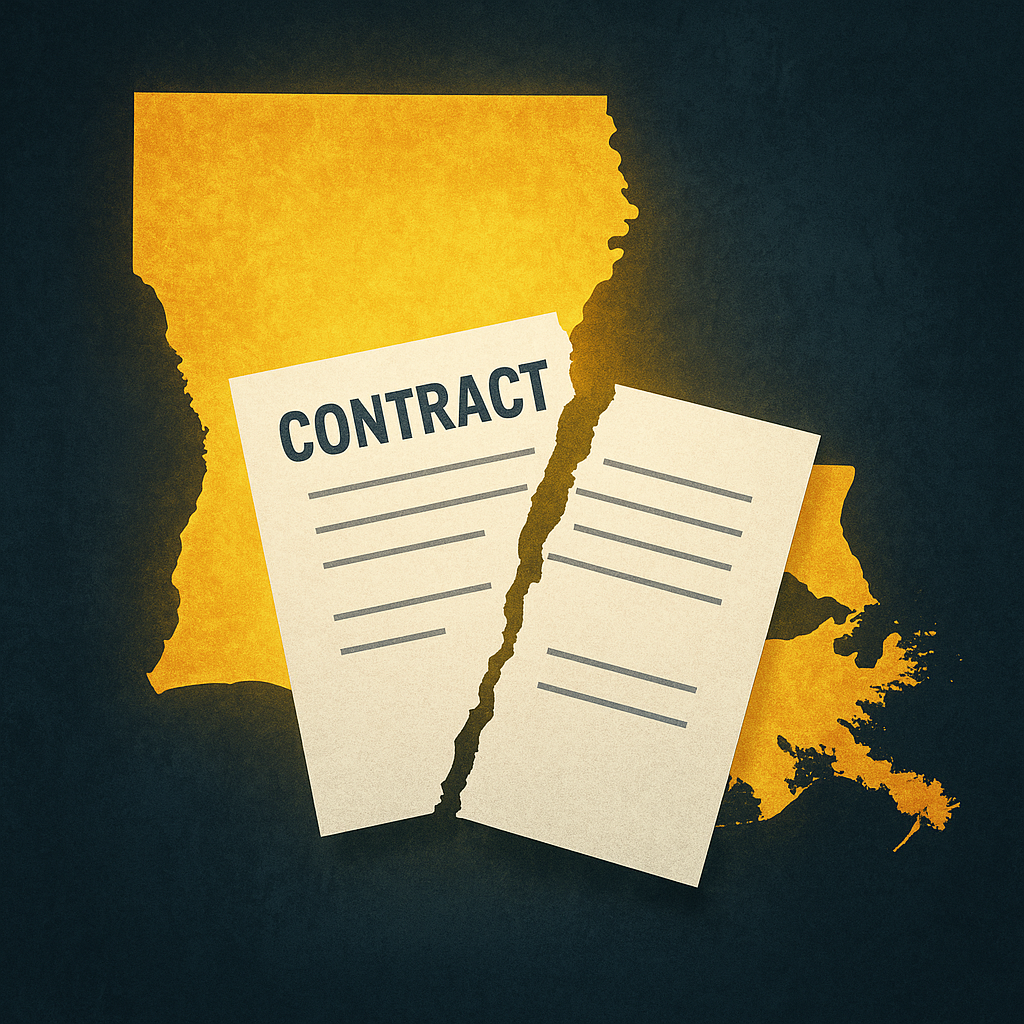 The Limits of Private Agreements
The Limits of Private Agreements
In Louisiana, freedom of contract is a powerful principle — people generally have the right to make their own legal agreements and decide the terms that govern their relationships, businesses, and property. But that freedom is not absolute.
There are certain laws that exist not just to protect individuals, but to safeguard society as a whole. When private agreements try to go against these laws, they cross a line — and under Louisiana Civil Code Article 7, such agreements are considered void from the start.
The Law: Louisiana Civil Code Article 7
Art. 7. Laws for the preservation of the public interest
Persons may not by their juridical acts derogate from laws enacted for the protection of the public interest. Any act in derogation of such laws is an absolute nullity.
No matter how two parties may agree between themselves, they cannot make a private deal that overrides or undermines laws created to protect the public good.
If they do, that agreement has no legal effect — it is as if it never existed.
What Does “Public Interest” Mean?
The term public interest refers to the collective welfare of the community, not the convenience or benefit of specific individuals.
Laws enacted for the public interest often deal with:
-
Public safety (for example, health and building regulations)
-
Consumer protection
-
Environmental protection
-
Employment rights and fair labor practices
-
Professional conduct and ethics
-
Insurance and financial regulations
These laws exist to maintain fairness, prevent exploitation, and preserve order in society. Individuals cannot simply “opt out” of them, even by mutual consent.
Examples: When Private Acts Cannot Override Public Law
-
Employment Agreements:
An employee cannot legally agree to work for less than the minimum wage or waive legally required rest breaks. Such agreements violate labor laws enacted for the public good and are automatically void. -
Landlord-Tenant Contracts:
A landlord cannot insert a clause waiving their obligation to provide safe and habitable living conditions. The right to habitability is protected by public policy and cannot be contracted away. -
Consumer Transactions:
A business cannot include a term that denies a consumer’s right to pursue legal remedies for fraud or injury. Laws protecting consumers are mandatory — not optional.
In each of these cases, even if both parties agree, the contract is legally meaningless to the extent that it contradicts public-interest law.
“Absolute Nullity”: What It Means
When Article 7 says that acts against public-interest laws are an “absolute nullity,” it means that the invalidity is total and automatic.
-
The contract or clause never had legal force, not even temporarily.
-
No one — not even the parties involved — can make it valid by ratifying or confirming it later.
-
A court can declare it null at any time, and any party (or even the court on its own) may raise the issue.
This concept is crucial because it distinguishes absolute nullity from relative nullity (which can be corrected or waived in some cases). When public policy is at stake, the law does not allow exceptions.
Why This Matters to You
For individuals and businesses in Louisiana, Article 7 serves as a reminder that not everything can be negotiated.
When drafting or signing contracts, it’s essential to ensure your agreement complies with public law. Attempting to bypass or ignore these laws can:
-
Void the entire agreement or key provisions,
-
Expose you to legal liability, and
-
Undermine your position in court.
Whether you’re entering into a commercial deal, an employment arrangement, or a service agreement, it’s vital to ensure your contract respects the limits imposed by public-interest law.
The Big Picture: Balancing Freedom and Fairness
Louisiana’s legal system, rooted in its civil law tradition, recognizes both individual autonomy and collective responsibility. Article 7 embodies that balance — it allows for freedom in private dealings, but not at the expense of justice, fairness, and societal well-being.
The message is clear:
Private agreements must operate within the boundaries of public good.
Need Legal Guidance?
Whether you’re drafting a contract, resolving a dispute, or reviewing an agreement, our experienced attorneys at Berniard Law Firm can ensure your legal documents comply with Louisiana’s laws and public policy requirements.
Other Berniard Law Firm Articles on Louisiana Civil Matters: Did the Son Have the Right to Lend Dad the Company Truck?
and
When Accidents Happen: The Limits of a Homeowner’s Liability for a Child’s Injury
 Louisiana Personal Injury Lawyer Blog
Louisiana Personal Injury Lawyer Blog

